Jeremy List
NeXT Rewards Design Strategy
Developing a product design strategy as a reaction to customer feedback while increasing player engagement and creating lasting motivation for consistent training.
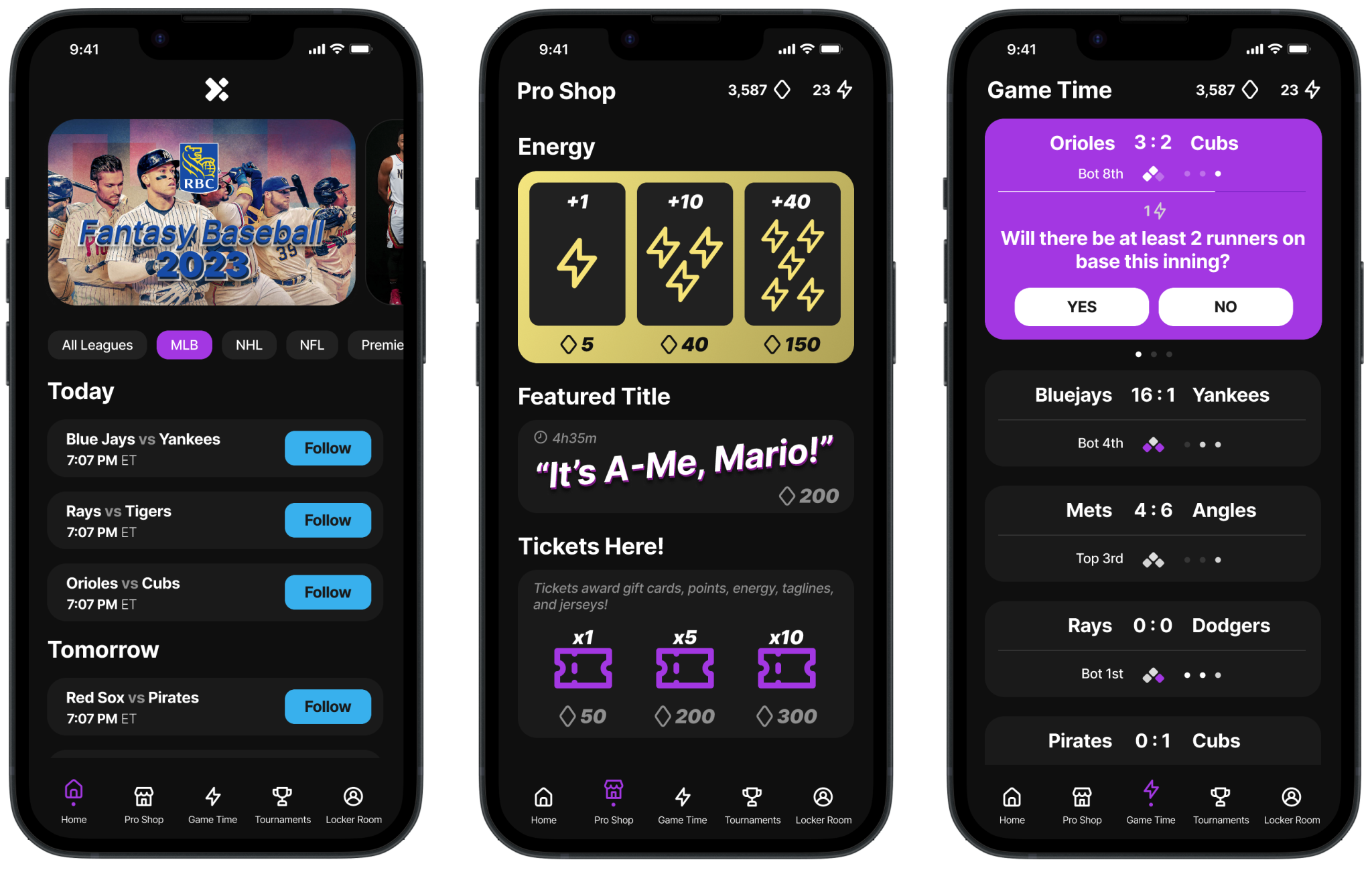
THE CHALLENGE WAS TO DECREASE REDEMPTION RATES WHILE INCREASING PLAYER ENGAGEMENT
While I had access to the CEO and co-founder, for this project I was the sole contributor. First I set out to understand our users. Leveraging Nielsen Sports data the following personas were identified.
Trendy Fan
Loves how sports defines them as a person. Pretty serious about games.
Armchair Fan
Participates from the comfort of their home.
Busy Fan
Sports provide a much needed break and are viewed where ever they are, when they have the time.
Social Fan
Love to connect with family and friends. Use sports to create personal interactions and are true sports fans when it's convenient.
The Social Fan (Community Craver) was identified as our target user because of the strong overlap with the NeXT value proposition. These fans typically crave competition, love sports, and value loyalty rewards. Additionally, another user persona self identified through feedback as "The Better Half" who largely fall into the Community Craver group. These individuals are typically the wife or girlfriend who watches sports to spend more time with their partner, and who are looking for ways to make the experience more fun.
The Game Loop
To understand the project's foundation, it's important to examine NeXT's core game mechanics. Having spent the past year at Prodigy studying game design and economics, I learned that successful games are built around well-structured engagement loops. At Prodigy, the game team organized around a clear loop: Explore, Battle, Upgrade. The most effective games establish loops where each element naturally supports and encourages progression to the next.
Through analysis, I identified NeXT's core engagement loop:
- 1. Explore - Follow Games
- 2. Action - Answer Game-Related Questions
- 3. Reward - Earn Points
- 4. Anticipation - Redeem Points for Rewards
This loop creates a natural progression: following games leads to relevant questions, correct answers provide immediate satisfaction and points, accumulated points enable reward redemption, and the sense of accomplishment drives players back to explore more games. While this loop developed organically without conscious game design principles, NeXT was well-positioned from a foundational perspective.
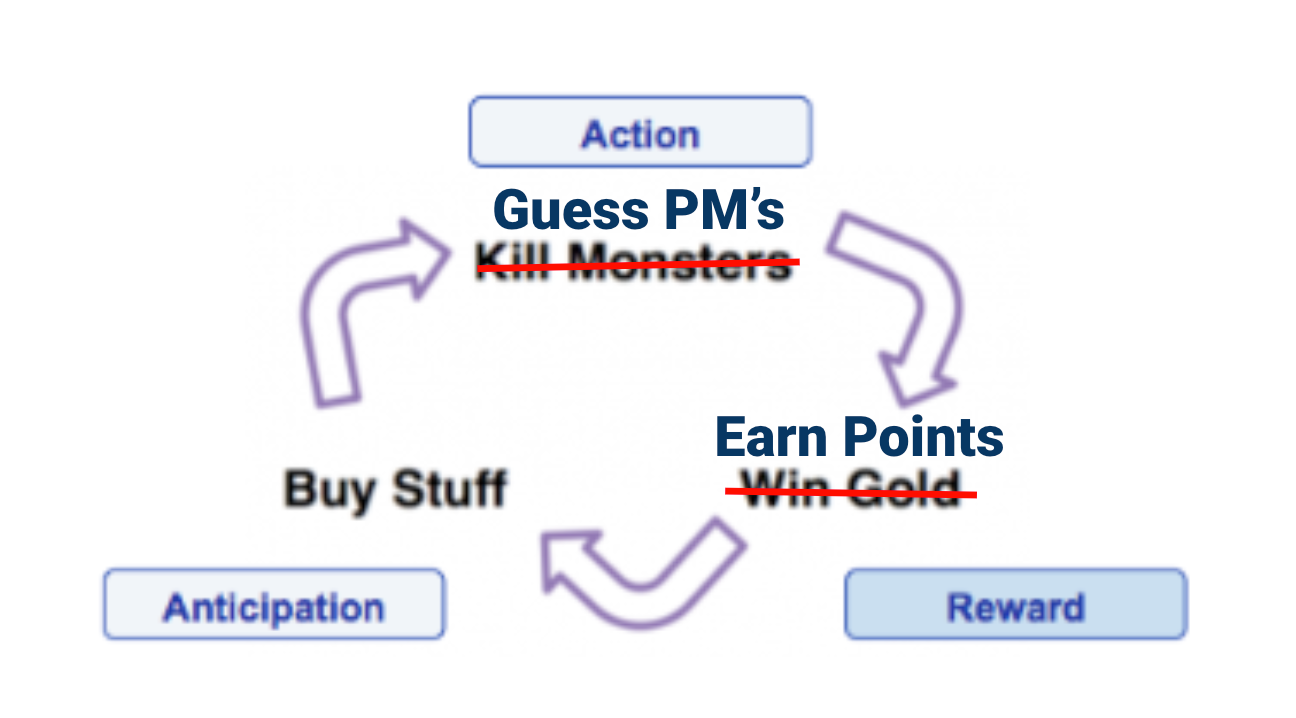
The Project Plan
Over a month period I executed a 4 step plan that loosely translated to a week each.
Discover
Dog food, interview and observe users
Explore
Build hypothesis and sketch ideas to solve user needs
Prototype
Increase fidelity and prototype to get a feel for the app
Strategize
Bring all of the pieces together into a design strategy recommendation
Discovery Findings
In the discovery phase I started using and playing the game heavily to start developing hypothesis. I also involved family members to observe their interactions with the game. External to the family I approached 4 individuals in my community who were consistent with the target persona. One of the participants had already been exposed to the app as a recommendation from a colleague. Through interviews and observation, a number of problems were identified.
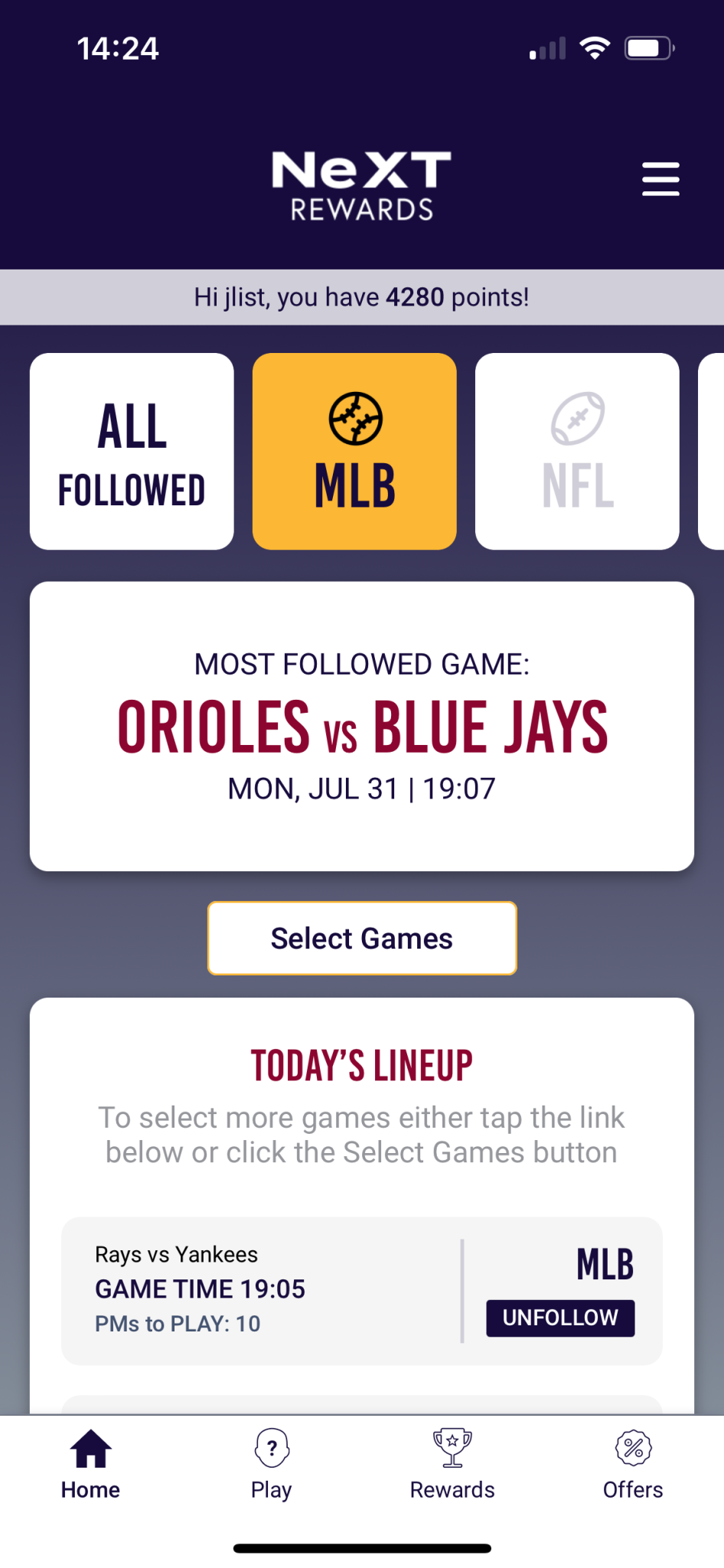
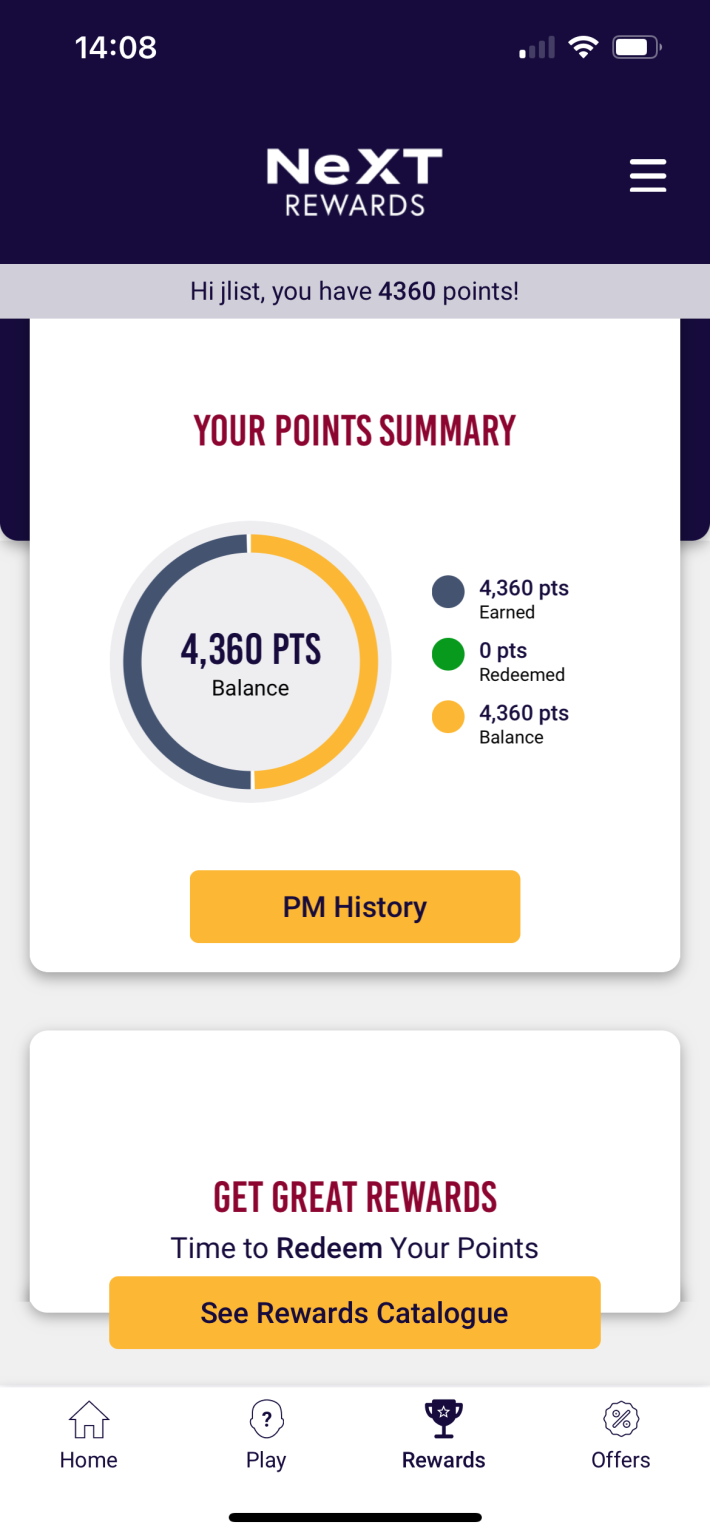
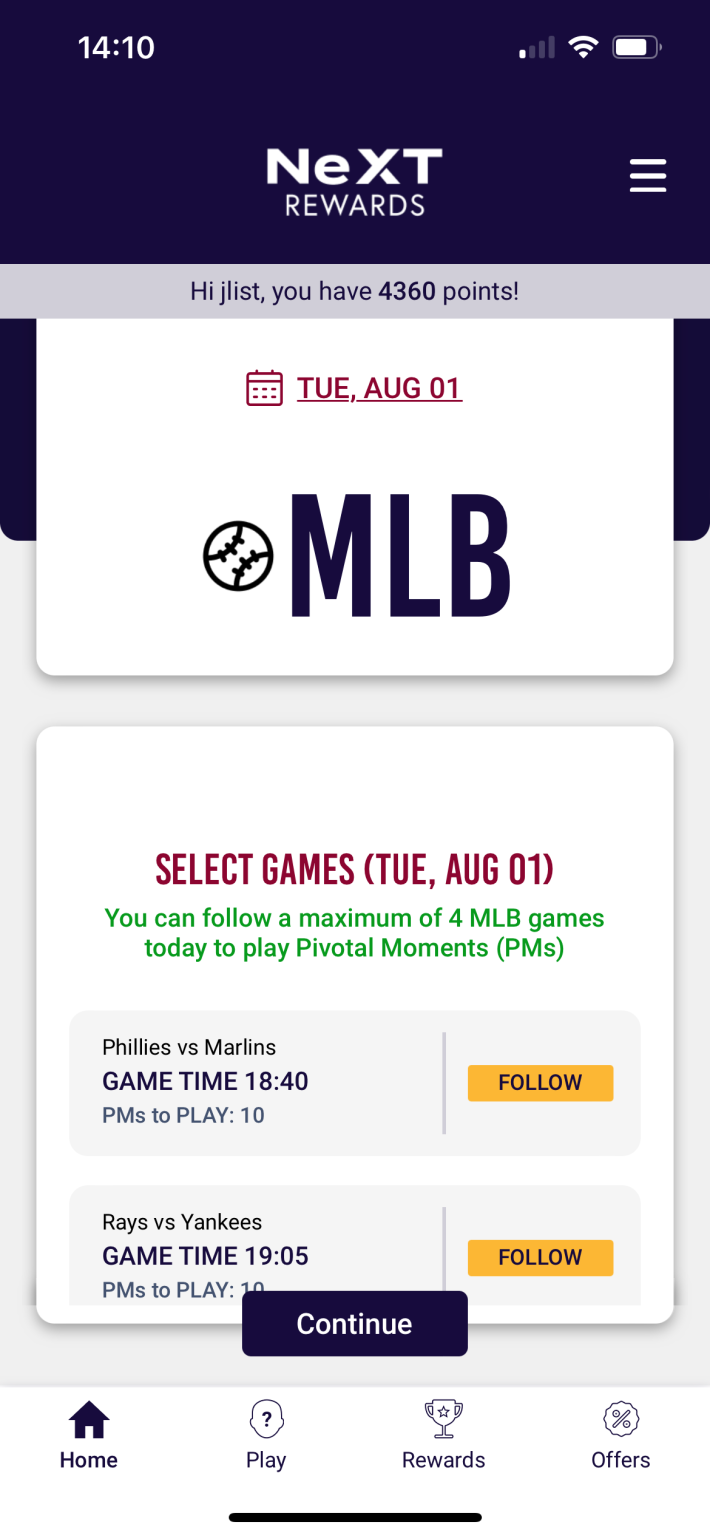
Existing application
"How do I follow a game?"— Test participant
"Why can't I select this game?"— Test participant
"Why don't I have any offers?"— Test participant
"Why can't I select games from the home screen?"— Test participant
Identified challenges
Explore
- • Re-engagement doesn't exist in the app
- • Finding and following games is difficult
- • Absence of game recommendations
Action
- • Y/N gameplay gets boring quickly
- • Low engagement between games
- • The game context gets lost unless watching
Reward
- • A single Currency limits options to shop in game
- • Bragging rights limited to in-person
Anticipation
- • Gift cards take a long time to save up for
- • There is nothing else to buy
Mapping the Application
This high-level player journey diagram maps the core user flows within the NeXT application, showing how user actions (white boxes), app screens (red boxes), and resulting events (purple boxes) interconnect to create a comprehensive engagement ecosystem.
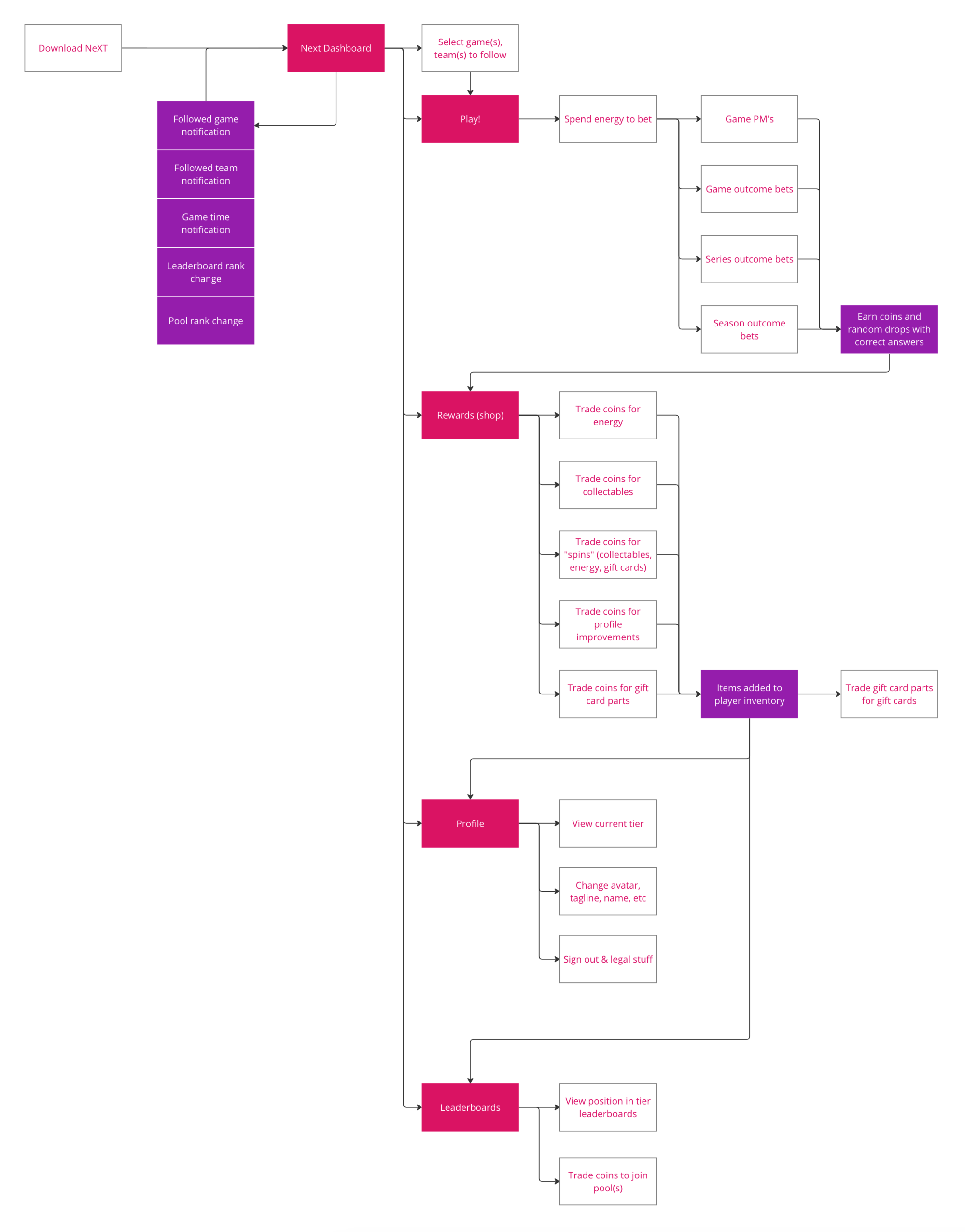
Conceptualizing Ideas
Trying to focus on divergent thinking, I sketched out several ideas that described my thinking and user value to be able to easily communicate back to stakeholders.
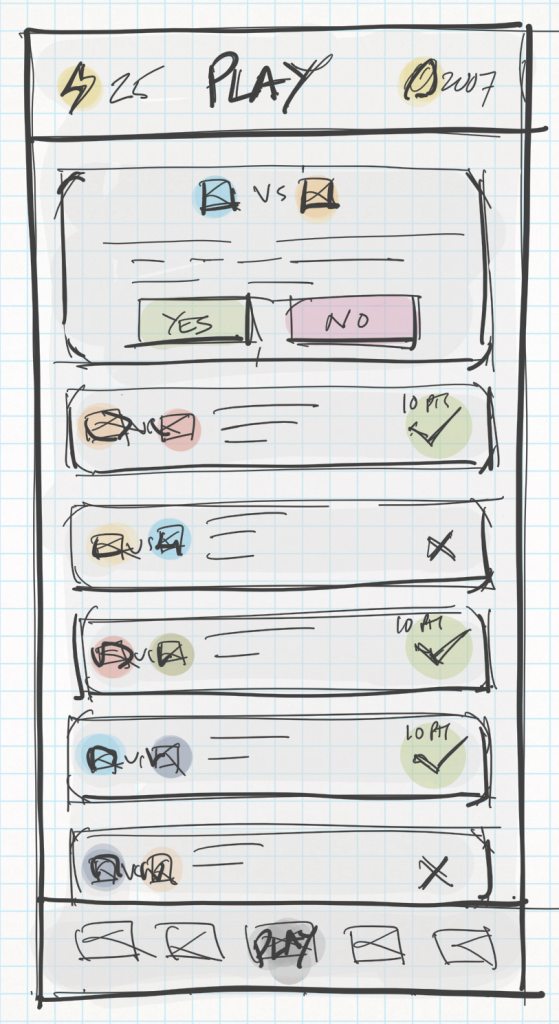
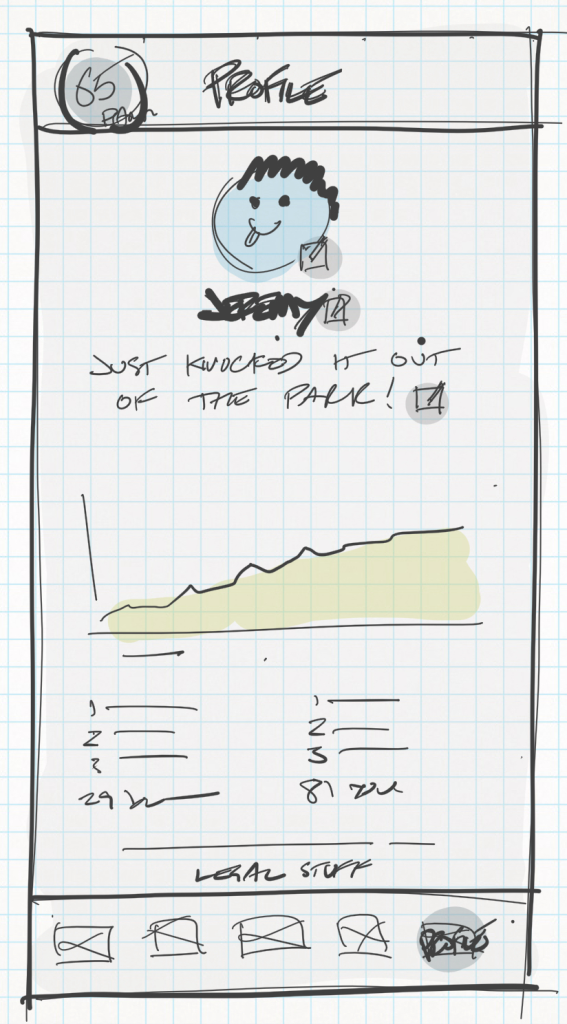
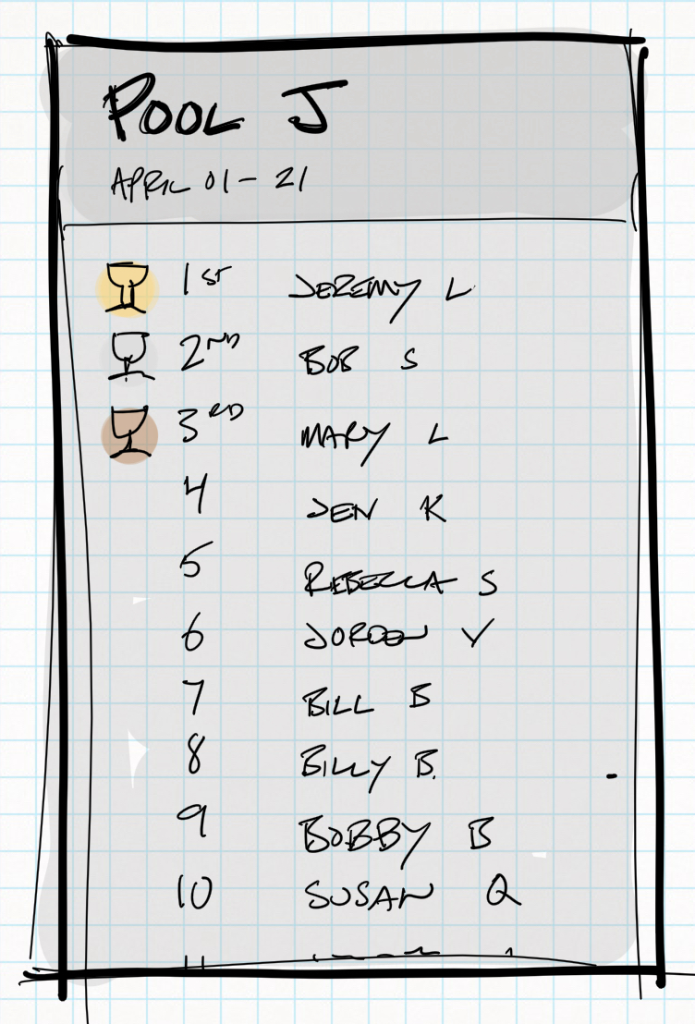
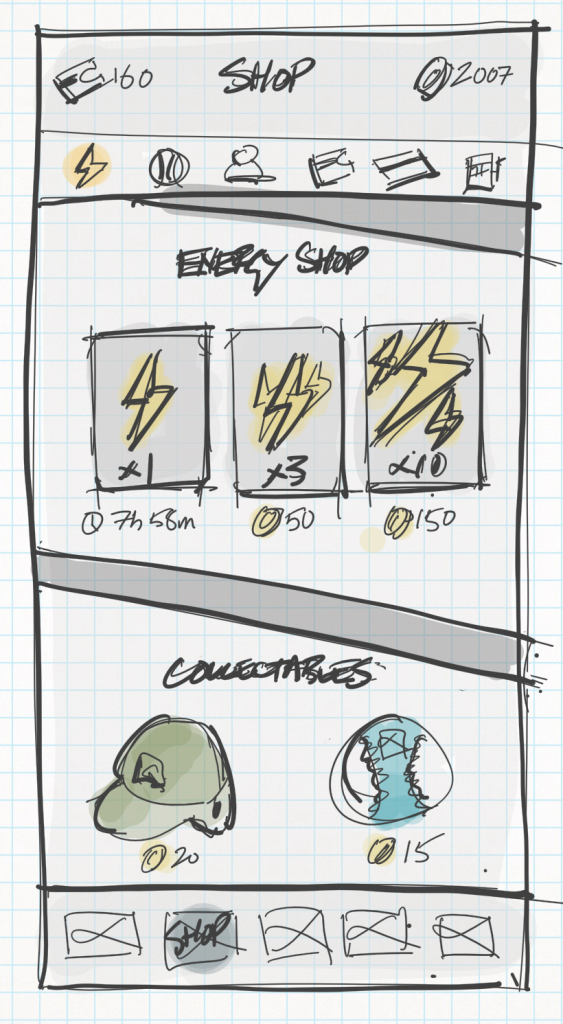
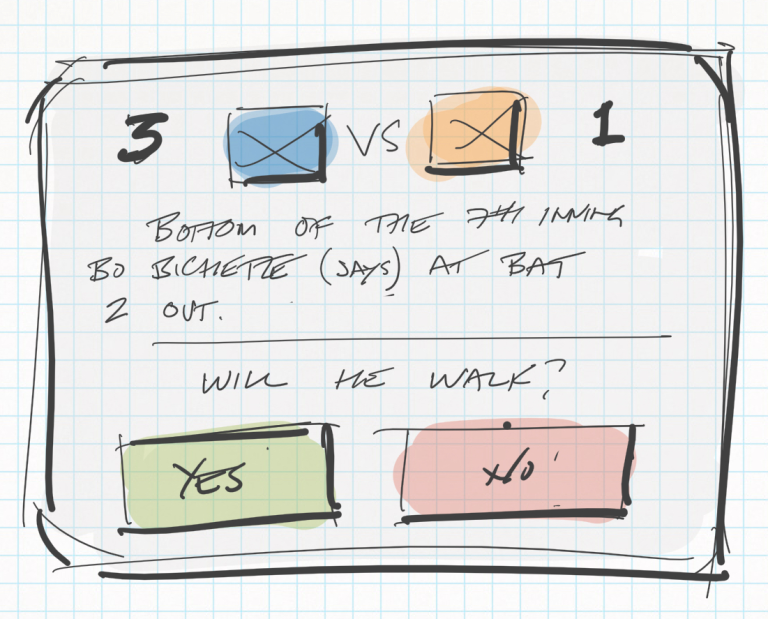
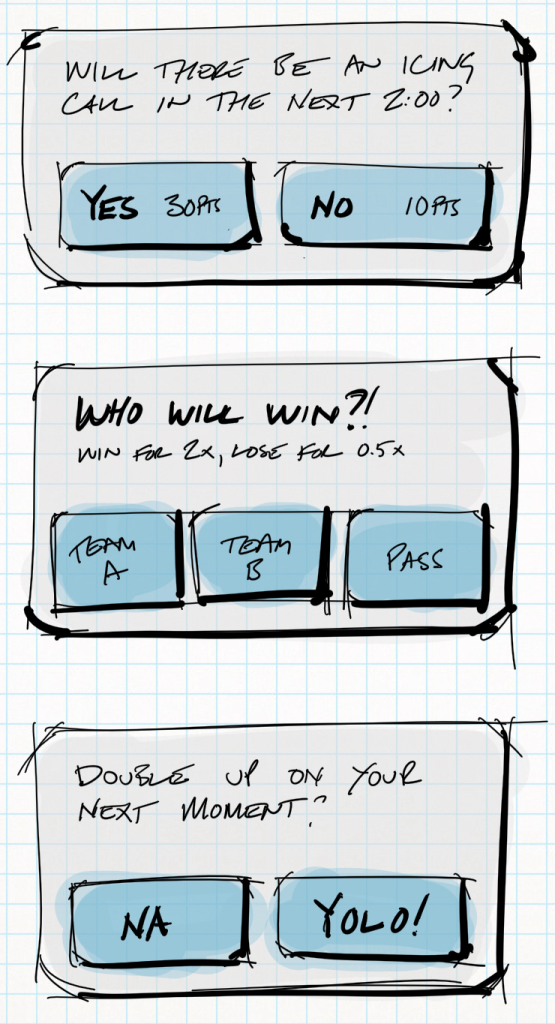
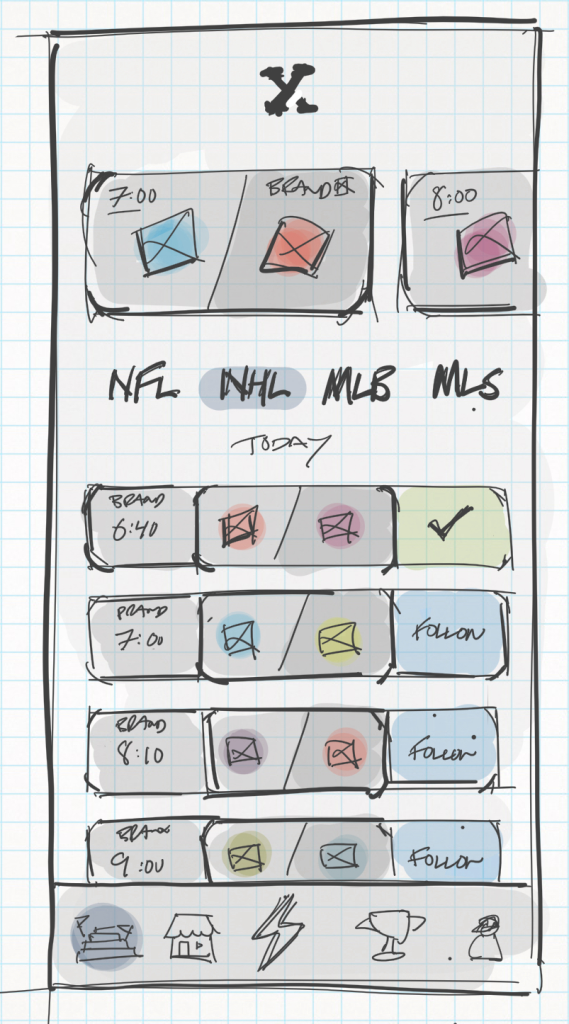
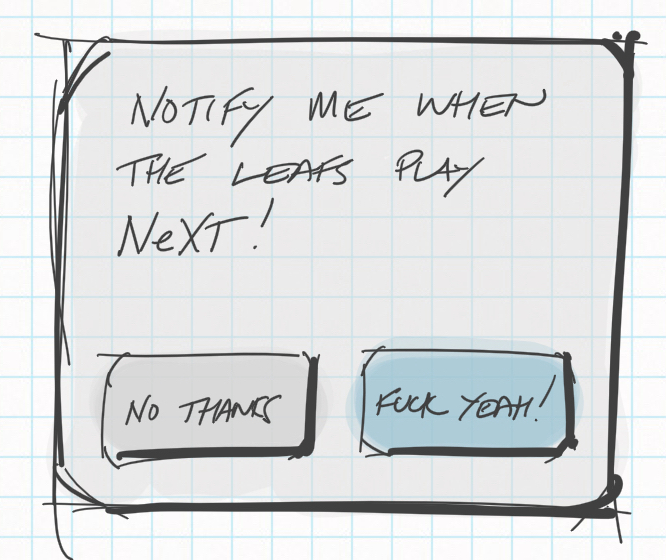
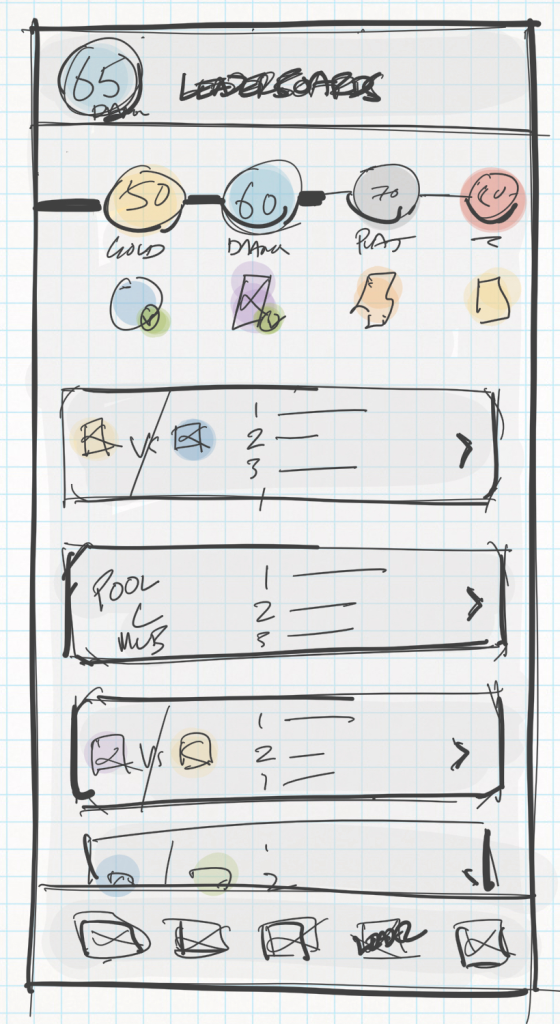
Conceptual sketches exploring various user engagement strategies
Prototyping for Testing
To validate the design concepts and test user flows, I built an interactive prototype in Figma that captured the core functionality and user experience.
Make games easier to find and follow to increase engagement
Introduce more buying variety to reduce redemption rates
Introduce competition to increase engagement and create spending opportunities
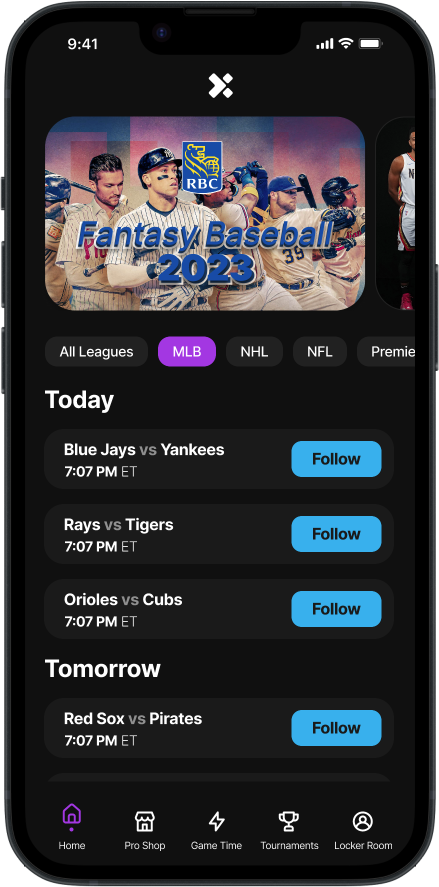
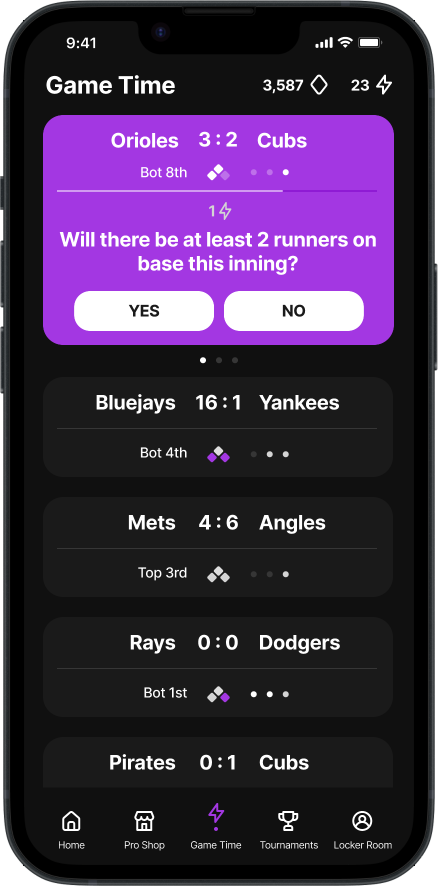
Usability testing was conducted with 6 users, 2 of which matched the target persona profile.
How would you go about following a game?
How would you go about changing your jersey?
You have enough points to purchase a $5 gift card at the Home Depot, how would you purchase it?
Can you tell me what the score of the Jays game is that's currently on?
All users could complete tasks without any major prompts, however exploration of the app was needed to set context for shopping, changing their jersey, and checking the score. Once found, it became clear for users.
The area that required the most tuning was the follow tile were information proved difficult to organize in a clean format. Ultimately legal rights are required before team logos can be displayed so a simplified design was chosen to start.
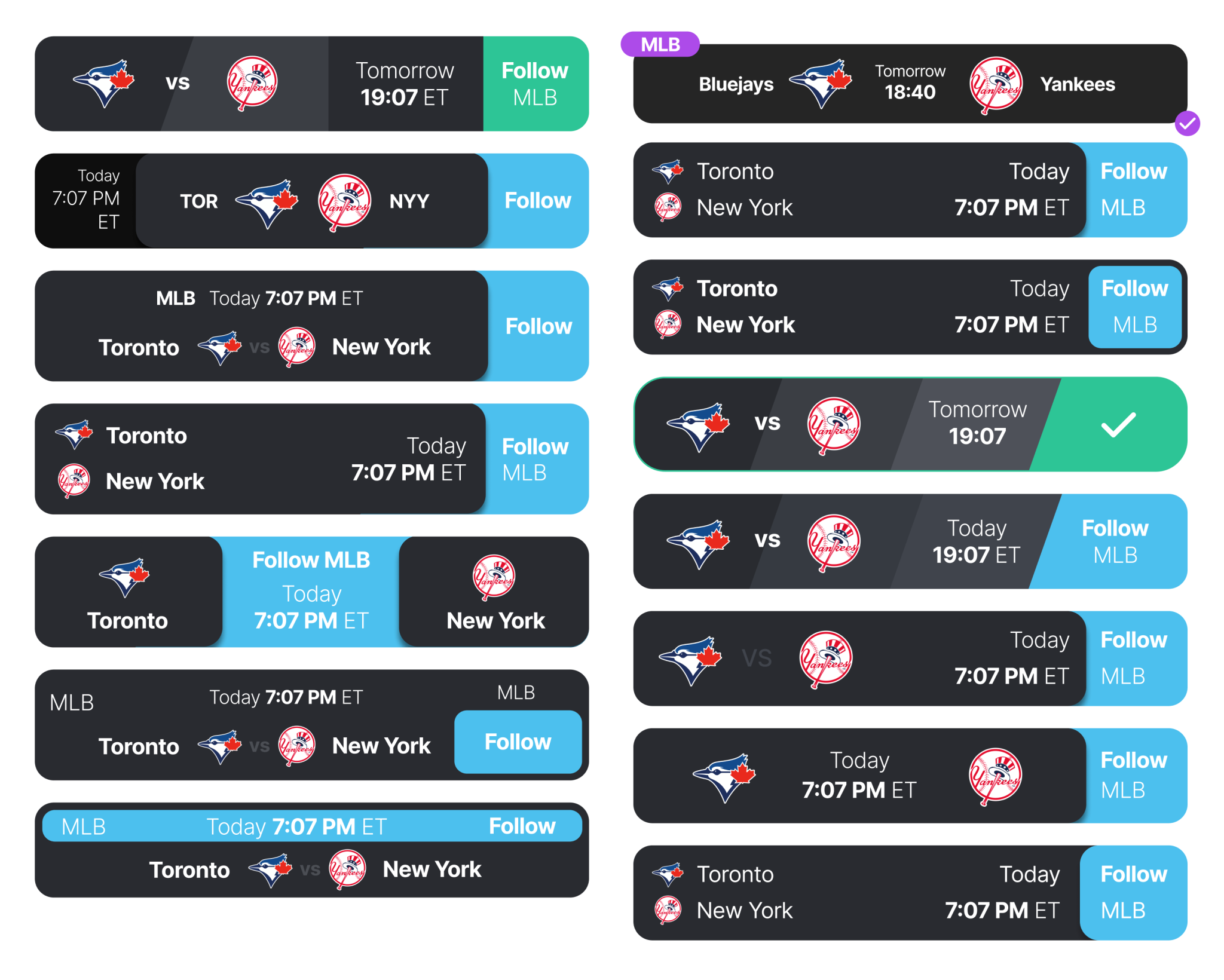
Introducing Shopping
The original concept offered only gift card redemptions. By expanding the shopping experience to include energy, tickets, jersey collections, and titles, we created a cost-effective strategy to reduce redemption rates while significantly increasing user engagement.
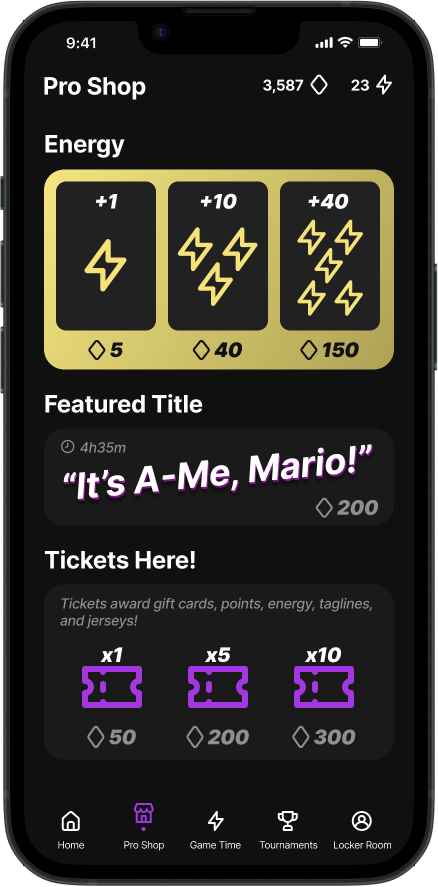
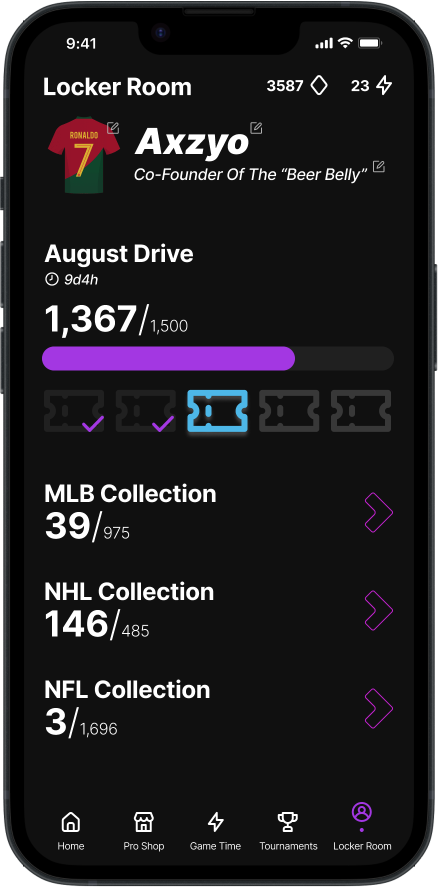
Strategizing NeXT Steps
Using the pirate metrics framework (AARRR!), we prioritize Acquisition, Activation, and Retention for core product improvements, with Revenue and Referrals following later.
Acquisition
Focusing on Acquisition first brings many people to an experience that's difficult to navigate and underwhelming.
Activation
Prioritizing Activation gets people efficiently into an experience that still falls short of expectations.
Retention
Building for Retention creates an exceptional experience that keeps people engaged and satisfied.
Which approach creates the most satisfied and engaged users? The answer is clear. Our recommended strategy follows an inside-out approach: RAA—Retention first, then Activation, then Acquisition.
To implement this retention-first strategy, we developed a four-phase roadmap that addresses core user experience issues while building toward long-term engagement.
UX Optimization
Streamline the game-following process and reduce user friction to increase engagement with followed teams
Player Profiles
Develop personalized player profiles with customizable items and rewards that can be earned through gameplay
Social Competition
Implement social leaderboards and achievement systems where players can showcase their progress and status
Enhanced Gameplay
Evolve beyond simple predictions to create more engaging and strategic gameplay mechanics
After completing the above 4 steps, the transition will be made to activation.